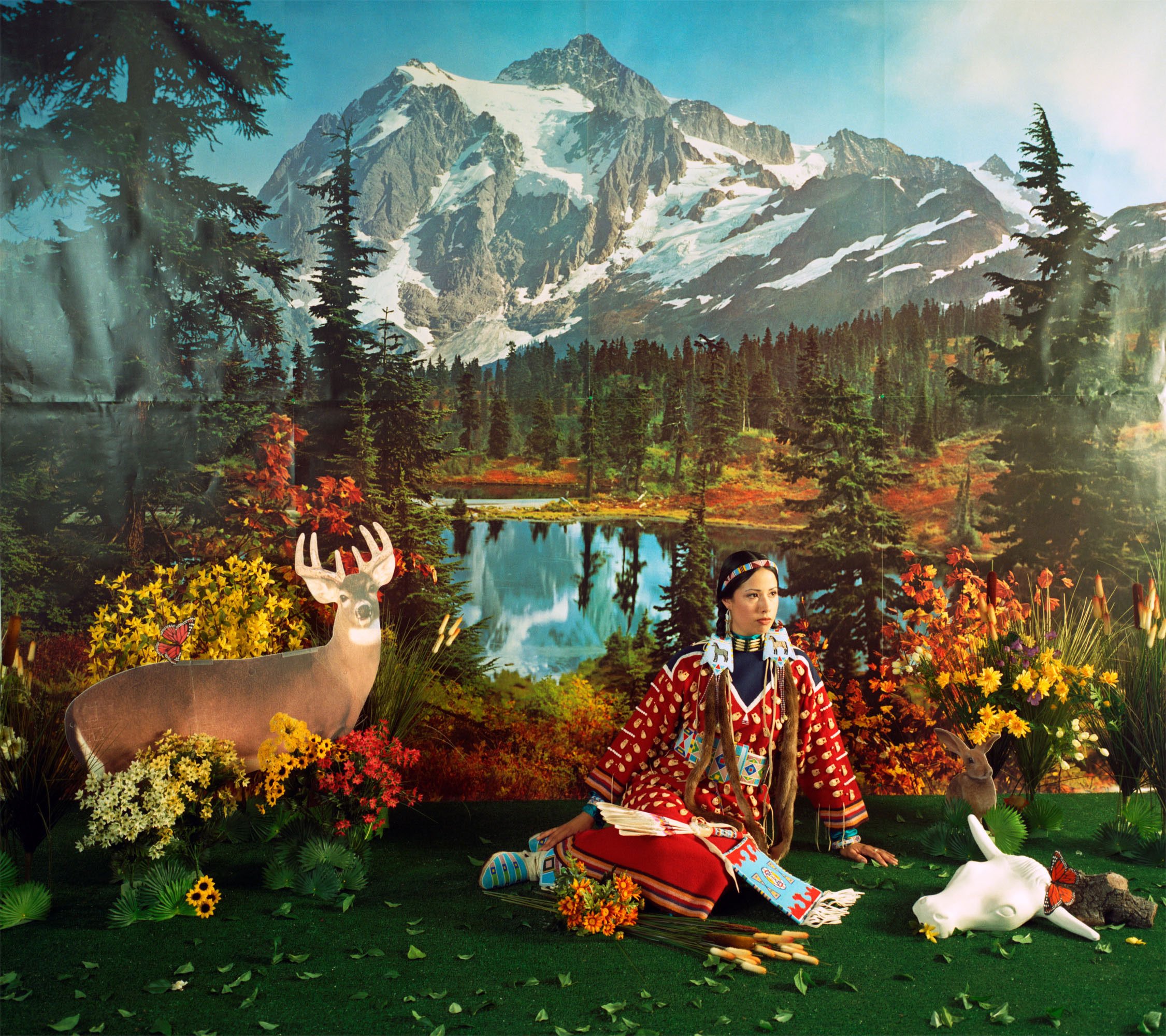
Native American Heritage Month
The Native American Heritage Month guide focuses on honoring and celebrating Indigenous history, culture, literature, and traditions.

Four Seasons by Wendy Red Star
From November 1st to November 30th, the United States celebrates the history, culture, and contributions of Native Americans that continue to enrich the quality and character of the nation. A team of Social Justice Peer Educators and the Foley Library are proud to collaborate on this Libguide to provide resources for learning about Indigenous stories. Here are some specific ways you can celebrate Native American Heritage Month and support the Indigenous community:
This year, the Foley Library and Social Justice Peer Educator (SJPE) Carolina Curran collaborate on the Native American Heritage Month display and LibGuide.
Learn more about the Unity Multicultural Education Center and Social Justice Peer Educators!
The history of Gonzaga University and the histories of indigenous peoples who currently reside within Spokane are deeply interwoven. Gonzaga University was built on stolen land which originally belonged to the Spokane Tribe of Indians. The land, initially purchased by Fr. Joseph Cataldo, was intended to be a school for Native Americans but instead became Gonzaga’s campus. The Spokane Tribe of Indians never signed a treaty, never ceded their land, but still Gonzaga was built. After its opening, two Native American boys sought an education at Gonzaga, but were turned away, because the school was only for “American” boys. Gonzaga’s first class included seven white students—sons of Catholic settler families.
In response to rejection by the university and theft of their land, Spokane Garry and other native leaders educated their people and resisted displacement by colonizers. Spokane Garry would die landless but defiant and help to preserve some of the Native culture, Native language, and community.
Despite indigenous resistance, in Spokane and beyond, the forceful removal of Native Americans from their land has led to generational trauma and irreparable harm and loss of indigenous culture and identity. Enforcement of the English language throughout the 19th and 20th centuries and subsequent punishment when this expectation was broken, led to a significant loss of Native language. The long-term effects of hegemony—the ability of “dominant” social groups to rule over “subordinate” groups in society through coercive and moral/ideological measures—are innumerable. The long-term effects of colonization continue to be prevalent today:
• Deaths of Native American children between ages of one and four are 3 times more likely to occur than within the general population
• Relative to white youth, Native children experience 4.6 times more injury-related death
• Native women are twice as likely to experience sexual assault
Today, the sčintxw Native American Cultural Center located on Gonzaga’s campus, seeks to begin and continue reparations, land acknowledgements, and other work to create a space for Native stories, voices and action. The center, which opened in 2017, began the practice of land acknowledgement on campus. Although these acknowledgements recognize past harm, they do not repair the past—true changes are visible in action. Gonzaga’s history with the indigenous peoples of Spokane is ongoing and each moment within our intertwined histories represents a choice by the institution, leaders, and community.
Spokane Tribe of Indians - History, culture, and current direction of the Spokane Tribe
Native Land - Map Indigenous territories, treaties, and languages
The U.S. Department of the Interior Affairs - The History of National Native American Heritage Month
New York City Public Schools - Overview of Native American Heritage Month
Smithsonian Center for Folklife & Cultural Heritage - American Indian Powwows
Official Native American Heritage Month Website - Exhibitions and additional information about Native American Heritage Month from the Library of Congress.
United States Census Bureau - Census data on Indigenous Americans